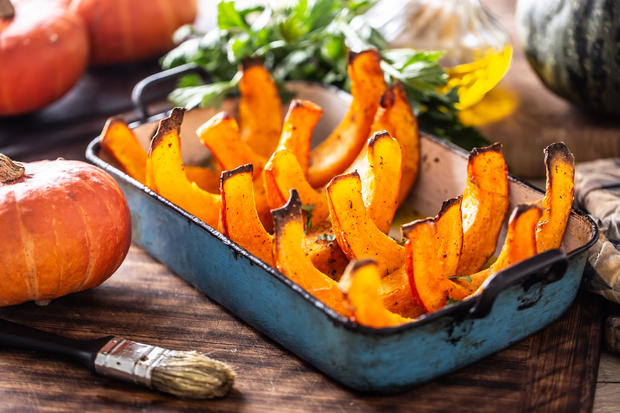Pumpkin is a superfood packed with nutrients, dietitian says — but there are some products to avoid
It's pumpkin season! And there are more pumpkin products available than ever before. Some just capitalize on the popularity of seasonal spices — but did you know pumpkins themselves are packed with nutritional benefits?
Julia Zumpano, a registered dietitian at Cleveland Clinic, says pumpkin is a superfood.
"It's high in fiber, which helps with blood sugar management, helps keep you more satisfied, helps with gut health and digestion," she says. "(It) can also help lower bad levels of cholesterol, (and) it's very low in calories."
Pumpkin is also a good source of antioxidants like vitamin A and C, which protect our cells from damage.
"Pumpkin contains betacarotene, which is converted into vitamin A, which can be used in the body for multiple great benefits with skin and immunity," Zumpano says. "We also know potassium can help lower blood pressure."
It's easy to incorporate more pumpkin in your diet, Zumpano says. They can be roasted, pureed into soup, or incorporated into muffins, breads or pancakes.
"Canned pumpkin on its own, with no other added ingredients, can be added into our foods, but you want to avoid purchasing foods that may have a lot of sugar or added fats that are pumpkin flavored," she says. "They may not actually contain a significant amount of pumpkin."
Don't forget the seeds, either. Pumpkin seeds contain fiber and protein and are also a good source of vitamin E and zinc, which can also help with immune health.
You can snack on the seeds on their own, or if you want a quick and easy way to incorporate the seeds into your diet, try adding them to your salad, oatmeal or over yogurt.








